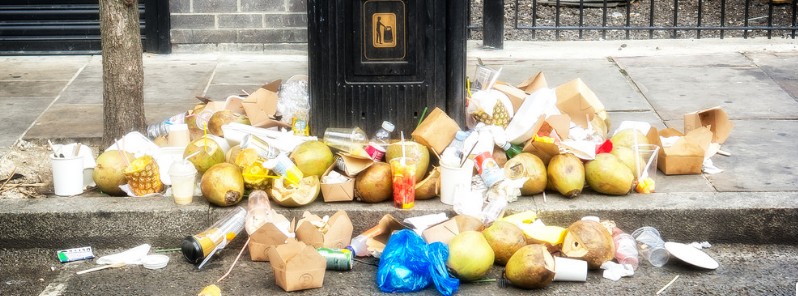Fifth of world’s food lost to over-eating and waste, study finds

Almost 20% of the food made available to consumers is lost through over-eating or waste, a study suggests.
The world population consumes around 10% more food than it needs, while almost 9% is thrown away or left to spoil, researchers say.
Efforts to reduce the billions of tonnes lost could improve global food security – ensuring everyone has access to a safe, affordable, nutritious diet – and help prevent damage to the environment, the team says.
Scientists at the University of Edinburgh examined ten key stages in the global food system – including food consumption and the growing and harvesting of crops – to quantify the extent of losses.
Using data collected primarily by the UN's Food and Agriculture Organization, the team found that more food is lost from the system than was previously thought.
Almost half of harvested crops – or 2.1 billion tonnes – are lost through over-consumption, consumer waste and inefficiencies in production processes, researchers say.
Livestock production is the least efficient process, with losses of 78% or 840 million tonnes, the team found. Some 1.08 billion tonnes of harvested crops are used to produce 240 million tonnes of edible animal products including meat, milk and eggs.
This stage alone accounts for 40% of all losses of harvested crops, researchers say.
Increased demand for some foods, particularly meat and dairy products, would decrease the efficiency of the food system and could make it difficult to feed the world's expanding population in sustainable ways, researchers say.
Meeting this demand could cause environmental harm by increasing greenhouse gas emissions, depleting water supplies and causing loss of biodiversity.
Encouraging people to eat fewer animal products, reduce waste and not exceed their nutritional needs could help to reverse these trends, the team says.
The study is published in the journal Agricultural Systems. It was carried out in collaboration with Scotland's Rural College, University of York, Karlsruhe Institute of Technology and the Centre for Australian Weather and Climate Research.
The research was funded through a Global Food Security Programme supported by the Biotechnology and Biological Sciences Research Council, Economic and Social Research Council, Natural Environment Research Council and the Scottish Government.
Dr. Peter Alexander, of the University of Edinburgh's School of GeoSciences and Scotland's Rural College, who led the study, said: "Reducing losses from the global food system would improve food security and help prevent environmental harm. Until now, it was not known how over-eating impacts on the system. Not only is it harmful to health, we found that over-eating is bad for the environment and impairs food security."
Professor Dominic Moran, of the University of York, who was involved in the study, said: "This study highlights that food security has production and consumption dimensions that need to be considered when designing sustainable food systems. It also highlights that the definition of waste can mean different things to different people."
Source: The University of Edinburgh
Featured image credit: Garry Knight (CC – Flickr)

Commenting rules and guidelines
We value the thoughts and opinions of our readers and welcome healthy discussions on our website. In order to maintain a respectful and positive community, we ask that all commenters follow these rules.